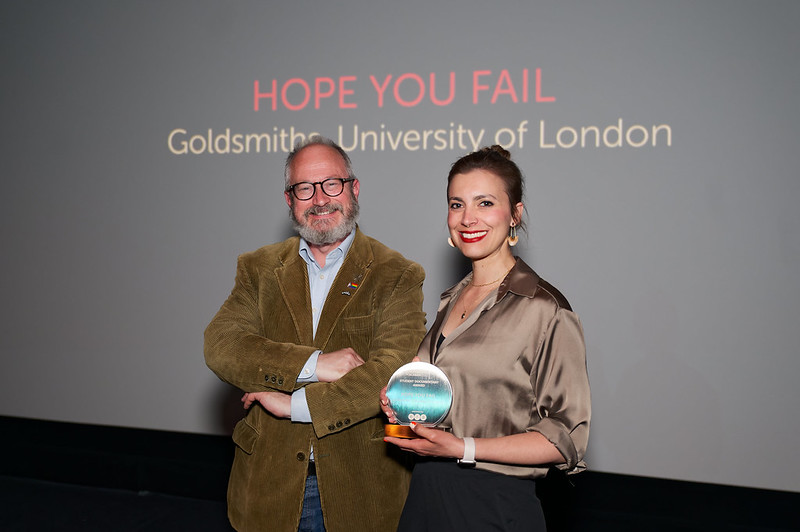Film director Alison Grasso speaks with ERA at the Learning on Screen Awards 2023
ERA were proud to sponsor the Student Documentary category at the Learning on Screen Awards 2023. The nominations were of an exceptionally high standard, with three very different but equally beautiful documentary films shortlisted for the award.

Photo credit: Charles Henderson – https://www.charleshenderson.co.uk/
The winning documentary, Hope You Fail, takes a deeper look at viral moment #Sprinklegate by examining the real person behind a small business, what compels their obsession with rainbow sprinkles, and how anxiety from previous failures inevitably colour their future in an increasingly online world.
The judges praised this film for its “great editing structure and cinematography with a lovely use of observational, staged and product shots. It also scored highly for its originality and overall production values.”
We caught up with director Alison Grasso after the event:
How did you discover the story of Sprinkle Gate and what led you to believe that it had potential as a documentary film?
I found the story like everybody else in the world did, it came up in Twitter as a viral thing. And then of course you go down the rabbit hole of going to the business’ Facebook page and their Instagram page and seeing what they’re saying and then needing to dig in more and find out what’s really going on.
As for deciding it was potential for a documentary film, for me it was the intersection of so many of my interests. I really like food, I really like baked goods and sweets, which is very specific. So it was speaking to me personally and it obviously was speaking to a very big audience, for that tweet to have gone viral. It’s clearly something other people find interesting.
What would you say are the ingredients of a good documentary film?
That’s a really big question, and it’s I think very subjective. But I think generally speaking, you want to get invested in your characters. You want to get invested in the story no matter what that is and you want to take your viewer on that ride with your characters or with you as the filmmaker.
In your opinion, what makes a documentary an effective learning tool?
I think it’s a super effective learning tool because there’s really a lot of meaning in real people and real stories. And you know how many times I’ve watched a film and come away from it with a totally new understanding of a different person’s life and a different way of living?
To what extent do you believe viewers should maintain a critical perspective when using documentary as a learning resource?
It’s important to be a critical consumer and it’s important to see there are varying perspectives. I think we have to look at every piece of media and take into account what information is omitted and why. Just because it’s in a textbook, who wrote the textbook? You know, somebody wrote the textbook and it’s supposed to not have their opinion or be editorialised. But there are certain things in the textbook and there’s certain things that are not in the textbook.
I think an important thing to do with any film is hold constructive dialogue afterwards. Watch the film and then say, “and now we’re going to have an hour to talk about it.” Let’s ask questions, let’s talk to each other. What do you think about this, this and this, and what were the lessons or facts that you took away from it?
Do you have any tips or advice for a student who is interested in filmmaking or editing?
We were very strongly encouraged to do something close to yourself, do a story about your family, do something you have access to because that presents the fewest logistical hurdles. And I did the opposite. I went and found a total stranger who was 2 1/2 hours away and totally bet it all on a chance. So in that sense it was a little bit ambitious. I guess number one piece of advice would be to make a story about something that you find interesting and try to make a film that you would want to watch.
